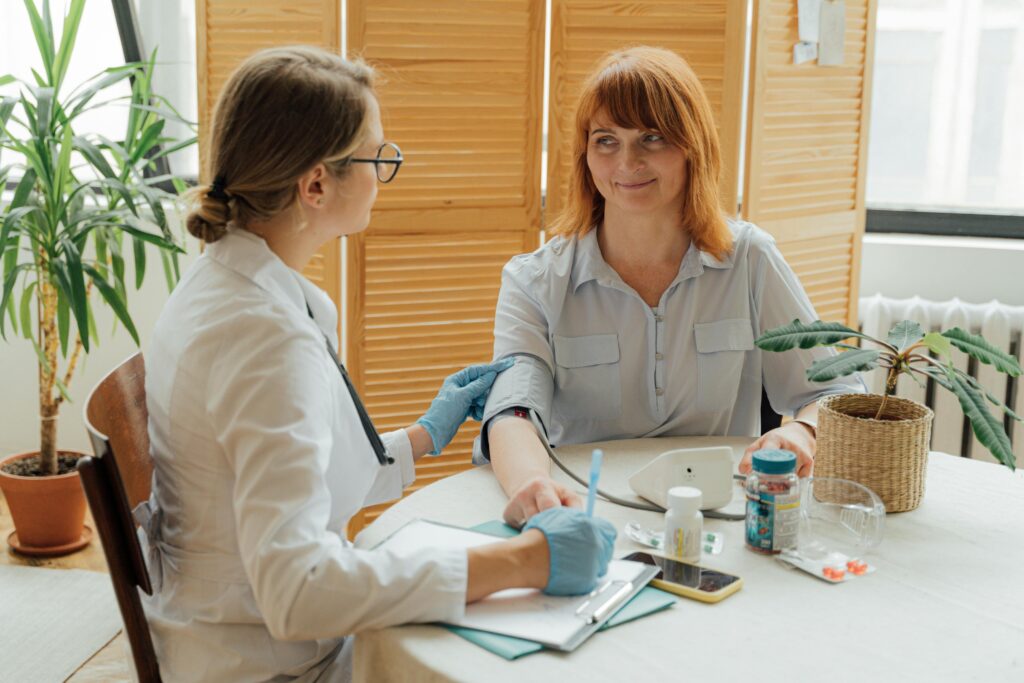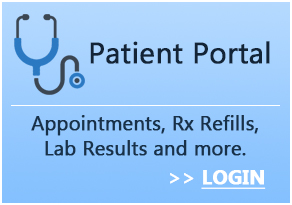
Did you know nearly 60% of women skip vital health screenings because they’re too busy caring for others? That’s a statistic that truly highlights a problem. Your health shouldn’t be the last thing on your to-do list. This guide cuts through the confusion surrounding women’s health screenings, providing you with clear, practical information.
Understanding these essential tests, from mammograms to cervical health, could save your life. We’ll give you the straight talk on which screenings matter most at different stages, empowering you to take charge of your well-being.
Why Regular Women’s Health Screenings Are So Important
Why Early Detection Matters
Early detection through regular health screenings can truly save your life. When health conditions are found early, you have more treatment options and better outcomes. For example, catching breast cancer early means a much higher chance of successful treatment. Don’t wait until a small light breaks down!
Your Recommended Screening Timeline
- Annual wellness exam: Your yearly complete check-up.
- Pap smear: Generally starts at 21 years old, then every 3 years. After 30, often every 5 years with HPV testing.
- Mammogram: Typically begins at 40, or earlier if you have a family history.
- Bone density test: Usually starts at 65, or sooner, with risk factors.
- Colonoscopy: Recommended starting at 45.
Beyond the Basics: Other Screenings to Consider
Depending on your health history or family background, your doctor may recommend additional screenings, such as genetic testing or earlier mammograms. Don’t forget mental health screening, too, since it’s just as vital as physical health, especially during life changes.
Ready to take charge of your well-being and get your essential women’s health screenings? Contact Empire OBGYN in Buffalo to schedule your appointment today!
Your Age-by-Age Guide to Essential Women’s Health Screenings
Essential Screenings for Women in Their 20s
- Annual wellness exams are crucial for overall health checks, even when one hits adolescence.
- Gynecologic care: Pap smears are recommended starting at 21 years old (every 3 years for cervical cancer screening). Also, regular breast exams.
- STI testing is important, especially with new partners.
- Other basics: Cholesterol check (at least once), eye exam every 2 years, dental and skin checks.
- Don’t forget to schedule a mental health screening for any mood changes or stress.
Key Health Tests for Women in Their 30s
- Continue annual wellness visits.
- Pap tests can now be every 3-5 years if combined with HPV testing.
- Consider thyroid checks via a simple blood test.
- If family planning, discuss fertility or prenatal screenings.
- Other key screenings: Diabetes screening (with risk factors), blood pressure, complete blood count, and Vitamin D levels.
- Prioritize mental health check-ins amidst life’s juggle.
Critical Screenings for Women in Their 40s
- Mammograms typically start annually or biennially at 40 for early breast cancer detection.
- Heart health: More attention to cholesterol and blood pressure.
- Diabetes screening: Recommended every 3 years due to the metabolic changes that occur over time.
- Other essential tests: Bone density baseline, glaucoma screening (eye exams), skin cancer checks, and thyroid function tests.
- Discuss perimenopause symptoms with your doctor.
Comprehensive Health Checks for Women 50+
- Colorectal cancer screening: Starts at 45-50 (colonoscopy is the gold standard; ask about alternatives).
- Bone density scans: Recommended every 2-5 years due to osteoporosis risk after menopause.
- Cardiovascular screenings: Even more critical for heart disease. Check cholesterol, blood pressure, blood glucose, and inflammatory markers.
- Lung cancer screening: For current or former smokers, a low-dose CT scan can help.
- Regular vision and hearing checks are also necessary.
Empower yourself by staying proactive with your health! Ready to schedule your essential women’s health screenings by age? Contact Empire OBGYN to book your appointment!
Lifesaving Reproductive Health Screenings for Women
Cervical Cancer: Pap Smears & HPV Testing
Your Pap smear and HPV test are crucial for preventing cervical cancer. A Pap test looks for abnormal cells, and an HPV test checks for the virus that causes most cervical cancers.
- Ages 21-29: Pap test every 3 years.
- Ages 30-65: Pap and HPV co-testing every 5 years, or Pap alone every 3 years.
- Over 65: May stop if you’ve had normal results for years.
Don’t skip these! Early detection boosts survival rates significantly. Even with the HPV vaccine, screening is still necessary.
Breast Cancer Detection: Mammograms
Mammograms can find breast cancer up to three years before you can feel a lump, which is vital for successful treatment.
- Average risk: Start annual or biennial mammograms at 40-45.
- High risk: Start earlier (e.g., at 30), potentially with MRIs.
Perform monthly breast self-exams. For comfort during your mammogram, schedule it post-period and consider an OTC pain reliever.
Ovarian Health Assessments
Ovarian cancer is often “silent,” so know your options. No single perfect test exists, but your doctor may perform:
- A pelvic exam.
- A transvaginal ultrasound is recommended if you have symptoms or risk factors.
- The CA-125 blood test, although it can yield false positives.
Know subtle signs: bloating, pelvic pain, feeling full quickly, frequent urination. If persistent, see your doctor. Genetic testing is an option if ovarian cancer runs in your family.
Fertility Screening Considerations
- 20s/early 30s: Regular gynecological exams (PCOS, endometriosis), cycle tracking, and STI screening.
- Mid-30s/early 40s: Ovarian reserve testing (AMH hormone), ultrasounds, and HSG (checks fallopian tubes).
If considering egg freezing, doing it before 35 typically yields better quality eggs.
Menopause-Related Health Evaluations
- Bone density test (DEXA scan): Estrogen loss thins bones. First test around menopause, then as recommended.
- Lipid panel: Cardiovascular risk increases after menopause.
- Thyroid function, blood pressure, blood sugar: These tend to change with age and hormones.
Track symptoms like hot flashes, mood changes, or sleep problems since they provide valuable information for your doctor. Discuss hormone therapy risks/benefits individually.
Want to know more about your reproductive health screening and how it can help you? Give us a ring at Empire OBGYN and let’s chat along with our capable and reliable experts!
Essential Women’s Health Screenings You Should Prioritize!
Lifesaving Cancer Screenings
- Breast Cancer: Mammograms are your best defense, catching tumors years before you can feel them. Most women should start annual screenings at 40 (earlier if you have a family history). Digital and 3D mammograms offer more accurate detection, especially for dense breast tissue. Between visits, do monthly self-exams to know your body.
- Cervical Cancer: Pap smears have drastically cut cervical cancer rates. Get your first at 21, then every three years. After 30, HPV testing alongside your Pap can extend screenings to five years. These quick tests catch issues early, before cancer develops.
- Colorectal Cancer: Rates are rising in younger women, so screenings now start at 45. Options include a colonoscopy every 10 years (the gold standard) or annual stool-based tests. The prep is often the hardest part, but early detection is vital.
- Skin Cancer: Melanoma rates are increasing, especially for women under 40. Get annual skin checks with a dermatologist if you have fair skin, a history of sunburns, or many moles. Use the ABCDE rule (Asymmetry, Border, Color, Diameter, Evolving) for monthly self-checks.
Prioritizing Your Mental Health
- Depression & Anxiety: Simple surveys like the PHQ-9 and GAD-7 can help identify issues. If you’ve had a baby, the Edinburgh Postnatal Depression Scale can screen for postpartum depression. Just ask your provider about these!
- Stress Management: Chronic stress affects everything. Watch for headaches, digestive issues, or feelings of being overwhelmed. Tools like mindfulness, exercise, and social connection can help.
- Sleep Health: Many women struggle with undiagnosed sleep disorders due to hormones or other factors. Consistent tiredness or unrefreshed waking needs attention. Sleep diaries or studies can help diagnose issues and improve your sleep quality, boosting overall health.
- Hormone-Related Mood: Hormonal shifts during your cycle, pregnancy, or menopause can impact mood significantly (e.g., PMDD, postpartum depression). Track your symptoms and discuss them with your doctor; effective treatments like hormone therapy or lifestyle changes can help. Don’t just endure it; your mental health deserves care.
Ready to take charge of your health? Contact Empire OBGYN and schedule your essential health screenings and discuss your personalized well-being plan!
Partnering with Empire OBGYN for Your Preventive Care
A Team Approach to Your Health
When you visit Empire OBGYN, you’re not just another appointment. Our specialized providers take time to understand your personal and family health history, ensuring your women’s health screening plan perfectly matches your individual needs and goals.
Comprehensive Services, One Location
Why visit multiple offices? Empire OBGYN offers a full spectrum of women’s health screenings and services right here:
- Pap smears and cervical cancer screenings
- Mammogram referrals and breast health evaluations
- STI testing and treatment
- Reproductive health assessments
- Menopause management
- Preventive gynecologic exams
Our state-of-the-art facilities ensure you receive the most accurate, up-to-date screenings and modern preventive care techniques.
Building a Long-Term Health Relationship
The real benefit of choosing Empire OBGYN is building a lasting relationship. Our providers track your health over time, spotting subtle changes that might otherwise go unnoticed. Your questions are always welcome, and we’ll provide clear explanations to help you make informed decisions about your preventive care. We’ll also help you maintain a regular screening schedule with timely reminders.
Prioritize your preventive health with a trusted partner! So contact Empire OBGYN and schedule your comprehensive screenings and start your journey to lasting wellness.
Take Charge of Your Health: A Confident Future Waits at Empire OBGYN
Taking charge of your health with regular women’s health screenings is one of the most powerful steps you can take for a healthier life. These preventive measures, from Pap smears to breast cancer screenings, help detect conditions early when treatment is most effective. Remember, screening recommendations change with your age, and mental well-being is just as vital as physical health.
You don’t have to navigate this alone. Partner with Empire OBGYN in Buffalo, WNY. We’ll help you understand age-appropriate screenings and create personalized preventive care for women. Prioritizing these screenings isn’t just about addressing potential problems; it’s an investment in your future wellness.Take that crucial step toward comprehensive health protection? Don’t wait to prioritize your well-being! Visit our website at www.empireobgyn.com to learn more and schedule your essential health screening appointment. Alternatively, you can call us directly at (716) 877-1221 today.





